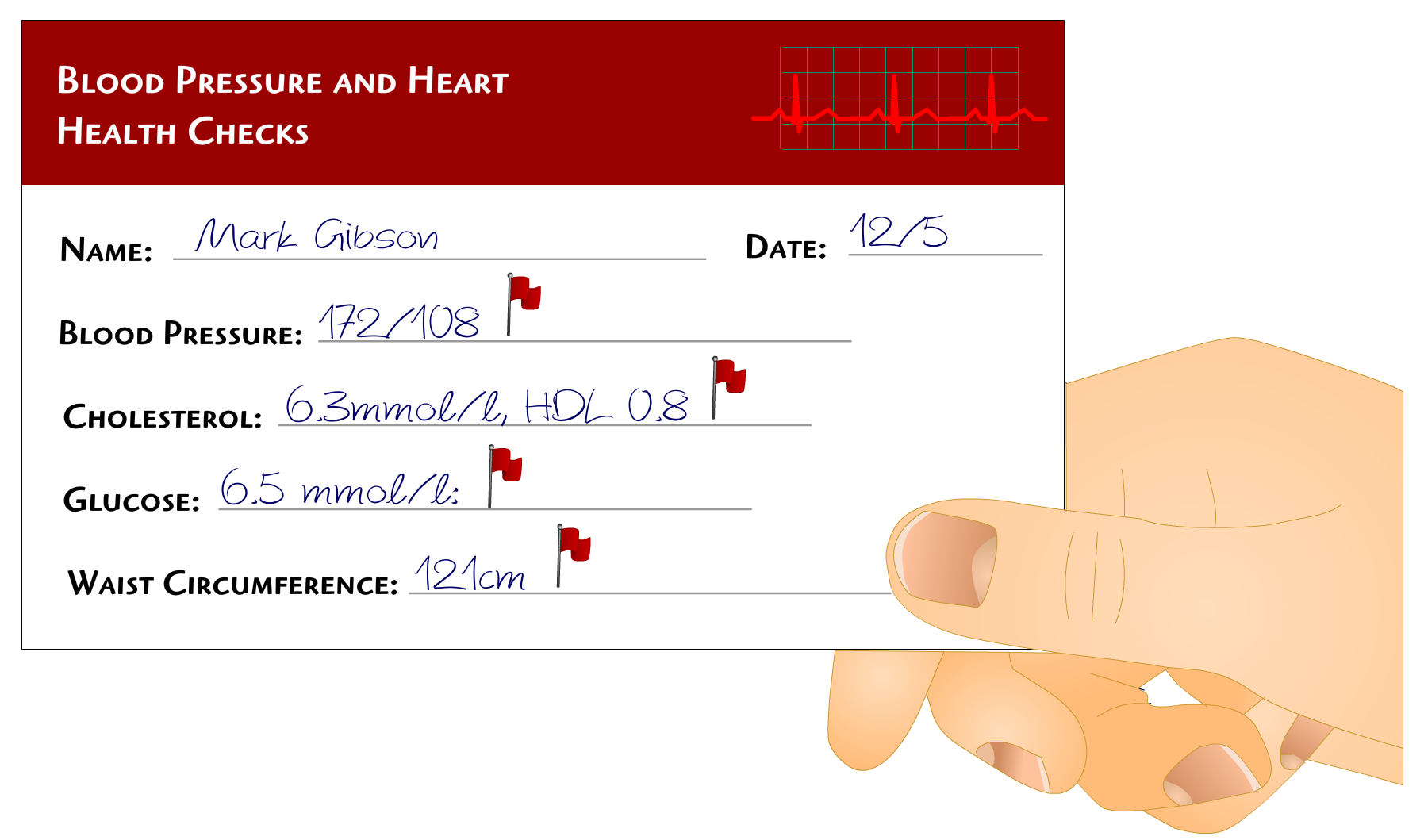The nurse explains what is involved in the Cardiovascular Disease (CVD) health check. Mark admits that it is about ten years since he has been to the doctor for anything. He usually feels well but did get a fright when his brother had a heart attack recently. Mark is glad of the opportunity to have the check. Mark has his blood pressure checked and it is 172/108. His pulse rate is 72 beats per minute and the rhythm is regular. Given that his blood pressure is elevated, the nurse rechecks it twice more but measures similar high readings. A capillary sample of blood is taken to test for total cholesterol, HDL cholesterol and a random blood glucose, using validated point of care equipment. His total cholesterol is 6.3mmol/L, HDL 0.8mmol/L and glucose 6.5mmol/L. The nurse measures Mark’s waist circumference as 121cm. Mark tells the nurse he has never smoked and drinks alcohol on special occasions. The nurse explains that he is going to calculate his risk of developing CVD in the next 10 years. He calculates this as 34%.

Look at Mark’s results above and work out the results for yourself. Remember he is 54, his postcode is QQ1 1QQ and he has a family history of CVD. Calculate Mark’s ASSIGN score.
Like many other assessment tools, ASSIGN has limitations. It does not address physical activity, diet, alcohol or mental health issues
Additional information
- Age: 54
- Height: 1.77 m
- Weight: 120kg
- Waist circumference: 121cm
- Glucose: 6.5 mmol/l:
- Takes minimal exercise
- Drinks: on special occasions
- Eats: fast food regularly
Key
- At risk
- Increasing risk
- Low risk
- Blood pressure: 172/108 : NICE/BHS2011 (Red flag)
- Cholesterol: 6.3mmol/l, HDL 0.8: SIGN (Red flag)
- Glucose: 6.5 mmol/l: JBS2 (Red flag)
- Waist circumference: 121cm: SIGN (Red flag)
Pulse point
ASSIGN is a cardiovascular risk scoring tool, developed at Dundee University, Scotland in 2006.
ASSIGN includes social deprivation and family history of cardiovascular disease, with the classic risk factors. It identifies people free of cardiovascular disease most likely to develop it over ten years. ‘High risk’ (score 20 or more) implies risk-lowering medication and/or other medical help. ASSIGN is the cardiovascular risk score chosen for use by SIGN (Scottish Intercollegiate Guidelines Network) and Scottish Government Health Directorates.
If you are unfamiliar with using the cardiovascular risk tool ASSIGN, you may find it useful to repeat the risks, changing parameters to see how different post codes, smoking history and risk factors can change the outcome significantly.
Local guidelines may be a variation on the best practice evidence based guidelines.
Page last reviewed: 26 May 2020


